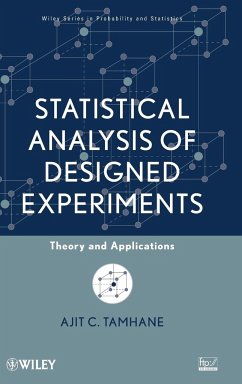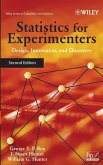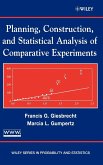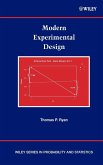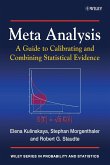This book provides a balanced coverage of underlying theory of statistical analysis of designed experiments and its numerous applications. Data sets from real life studies are used throughout, and graphical as well as formal analyses are illustrated using MINITAB(c) software. Applications are drawn from diverse areas including agriculture, biology, engineering, marketing, medicine and psychology. Thus the book should be of interest to students from a wide variety of disciplines with the necessary mathematical and statistical backgrounds. The book should also serve as a good reference source to practitioners.
A indispensable guide to understanding and designing modern experiments
The tools and techniques of Design of Experiments (DOE) allow researchers to successfully collect, analyze, and interpret data across a wide array of disciplines. Statistical Analysis of Designed Experiments provides a modern and balanced treatment of DOE methodology with thorough coverage of the underlying theory and standard designs of experiments, guiding the reader through applications to research in various fields such as engineering, medicine, business, and the social sciences.
The book supplies a foundation for the subject, beginning with basic concepts of DOE and a review of elementary normal theory statistical methods. Subsequent chapters present a uniform, model-based approach to DOE. Each design is presented in a comprehensive format and is accompanied by a motivating example, discussion of the applicability of the design, and a model for its analysis using statistical methods such as graphical plots, analysis of variance (ANOVA), confidence intervals, and hypothesis tests.
Numerous theoretical and applied exercises are provided in each chapter, and answers to selected exercises are included at the end of the book. An appendix features three case studies that illustrate the challenges often encountered in real-world experiments, such as randomization, unbalanced data, and outliers. Minitab® software is used to perform analyses throughout the book, and an accompanying FTP site houses additional exercises and data sets.
With its breadth of real-world examples and accessible treatment of both theory and applications, Statistical Analysis of Designed Experiments is a valuable book for experimental design courses at the upper-undergraduate and graduate levels. It is also an indispensable reference for practicing statisticians, engineers, and scientists who would like to further their knowledge of DOE.
Hinweis: Dieser Artikel kann nur an eine deutsche Lieferadresse ausgeliefert werden.
A indispensable guide to understanding and designing modern experiments
The tools and techniques of Design of Experiments (DOE) allow researchers to successfully collect, analyze, and interpret data across a wide array of disciplines. Statistical Analysis of Designed Experiments provides a modern and balanced treatment of DOE methodology with thorough coverage of the underlying theory and standard designs of experiments, guiding the reader through applications to research in various fields such as engineering, medicine, business, and the social sciences.
The book supplies a foundation for the subject, beginning with basic concepts of DOE and a review of elementary normal theory statistical methods. Subsequent chapters present a uniform, model-based approach to DOE. Each design is presented in a comprehensive format and is accompanied by a motivating example, discussion of the applicability of the design, and a model for its analysis using statistical methods such as graphical plots, analysis of variance (ANOVA), confidence intervals, and hypothesis tests.
Numerous theoretical and applied exercises are provided in each chapter, and answers to selected exercises are included at the end of the book. An appendix features three case studies that illustrate the challenges often encountered in real-world experiments, such as randomization, unbalanced data, and outliers. Minitab® software is used to perform analyses throughout the book, and an accompanying FTP site houses additional exercises and data sets.
With its breadth of real-world examples and accessible treatment of both theory and applications, Statistical Analysis of Designed Experiments is a valuable book for experimental design courses at the upper-undergraduate and graduate levels. It is also an indispensable reference for practicing statisticians, engineers, and scientists who would like to further their knowledge of DOE.
Hinweis: Dieser Artikel kann nur an eine deutsche Lieferadresse ausgeliefert werden.

